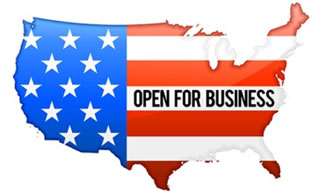DECEMBER 2013 – Electrical Steel Trade Cases
The petitions covering Non-Oriented Electrical Steel (NOES) and Grain Oriented Electrical Steel (GOES) that were filed by the Domestic Producers of these materials earlier this fall have moved through their initial review by the ITC. AK Steel recently released a statement on their website expressing their opinion on the most recent developments, as detailed below.
AK Steel Applauds U.S. International Trade Commission’s Preliminary Ruling Against Unfairly Traded Imports of Non-Oriented Electrical Steel
West Chester, OH, December 03, 2013—AK Steel (NYSE: AKS) said today that the U.S. International Trade Commission (ITC) has made a unanimous preliminary determination that non-oriented electrical steel (NOES) produced in several foreign countries is causing injury to AK Steel. The preliminary injury determination means that cases against NOES producers in six countries will proceed.
“We applaud the ITC’s preliminary ruling against unfairly traded imports of non-oriented electrical steel,” said James L. Wainscott, Chairman, President and CEO of AK Steel. “The rules of fair trade apply to all of our competitors, and we will continue to vigorously defend our ability to compete by using every tool at our disposal.”
AK Steel filed petitions with the ITC and the United States Department of Commerce (Commerce Department) on September 30, 2013 charging that unfairly traded imports of NOES from China, Germany, Japan, South Korea, Sweden and Taiwan were causing material injury to the domestic industry. Antidumping cases were filed against all six countries, in addition to countervailing duty cases alleging subsidization in China, South Korea and Taiwan. The cases now move to the Commerce Department for determinations as to whether foreign producers are violating U.S. antidumping law by selling their products at less than fair value in the United States, and U.S. countervailing duty law covering government subsidies.
The Commerce Department will calculate antidumping margins, which are designed to offset the amount by which the product is sold at less than fair value, and subsidy rates, which are designed to offset the amount by which the product benefits from unfair government subsidies. Estimated antidumping duties will be collected from importers as of the date of the Commerce Department’s preliminary determinations, which will occur on March 26, 2014. If foreign producers attempt to “beat the clock” by making massive shipments into the U.S. market before the Commerce Department’s preliminary determinations, antidumping and countervailing duties can be imposed retroactively beginning 90 days prior to the preliminary determinations.
The expected result of this initial ruling is that the supply of Globally produced Silicon Electric materials from the targeted countries named in the suit will essentially cease, pending the final Duty rulings.
As discussed in our Sko-Die Newsletter last month, because these grades of steel are such an integral aspect of the products that we supply to our customers, Sko-Die believes that these actions and subsequent rulings will place inflationary pressure on some grades of Electrical Steel in the coming months. Depending on how these cases play out, the effects could have both short term and long term material cost implications. Our team is staying close to the issue and will continue to keep our customers advised as to what, if any effect this action will have on the products that we supply.
The cases related to Electrical Steels that are in process are not unique within the domestic Steel industry. Recently, The U.S. International Trade Commission has decided to keep anti- dumping tariffs on Hot-Rolled steel in effect until 2018. The duties apply to steel from China, India, Taiwan, Thailand and the Ukraine. All are accused of subsidizing their steel production to set up unfair competition for Domestic producers of this material, to include AK Steel. These tariffs were originally imposed in 2001 and renewed in 2007.
Electrical Steel Raw Material Surcharges
AK Steel will continue with its practice of adding a monthly Raw Material Surcharge to the pricing of its Electrical Steel products into 2014. This practice has been in place with AK Steel for about 10 years and serves to protect the mill from swings in the costs embedded in the production of their materials, particularly the Energy and Scrap elements. AK Steel produces 100% of its Silicon Electric Steel via recycled steel scrap, and along with other Steel producers that “Melt from Scrap” such as Nucor and SDI, they are particularly cost sensitive to Scrap and Energy factors.
At Sko-Die we remain –

